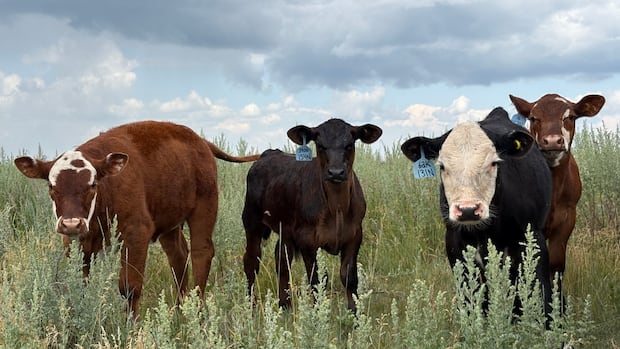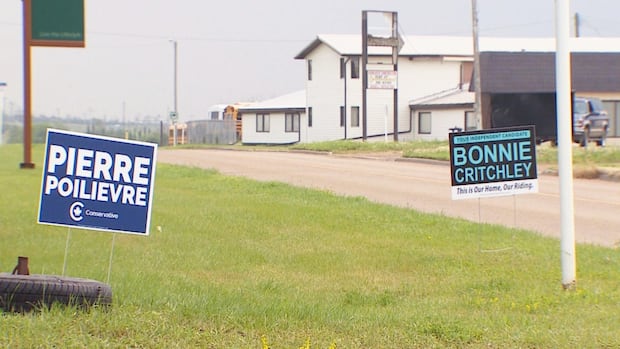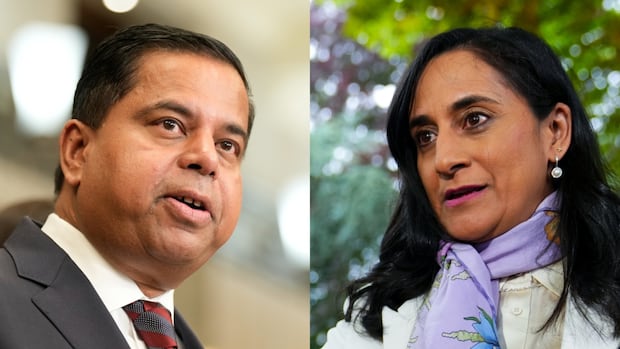Many First Nations in Alberta are denouncing Bill 54, the Election Statutes Amendment Act tabled in the provincial legislature Tuesday, saying it disregards treaty rights.
If passed, it will change how referendums can be introduced in the province by lowering the signature threshold required.
In a letter, Sturgeon Lake Cree Nation Chief Sheldon Sunshine and Mikisew Cree First Nation Chief Billy-Joe Tuccaro accused Premier Danielle Smith of “attempting to manufacture a national unity crisis by enabling a referendum on separatism.”
“Alberta did not exist when our ancestors agreed to share the land with the Crown. The province has no authority to supersede or interfere with our treaties, even indirectly by passing the buck to a ‘citizen’ referendum,” the letter continued.
Tuccaro told CBC News the bill continues the work the province started when they introduced the Alberta Sovereignty Within a United Canada Act in 2022.
“If treaty rights were broken … it would allow Alberta to do anything they would see fit in regards to our traditional territories,” he said.
“If the treaties are broken then that leaves us as First Nations with absolutely nothing in regards to holding the British Crown responsible for their fiduciary responsibility, and that is to uphold the treaty that we signed in 1899.”
He described the relationship between the province and First Nations as “very tense” and said if the bill is passed, “There will be a rise up from the treaty people.”
In a news release, the Blackfoot Confederacy said the proposed legislation “threatens the constitutional and legal order by disregarding the Nation-to-Crown agreements that define our relationship to the state.”
It reminded the province their treaty “was not a land surrender,” but rather “a framework for peaceful coexistence and shared use of territory.”
“We will aggressively protect our historic treaty rights and our inherent rights,” said Piikani Nation Chief Troy Knowlton in a statement.
“We will require that the Crown’s obligations to First Nations be honoured and fulfilled.”
‘Enabling direct democracy’
At a news conference on Thursday, Smith said she respects “all of the treaty rights that are enshrined in the Constitution.”
She described referendums as “enabling direct democracy,” and she encouraged all Albertans — including Indigenous people — to embrace it.
“The purpose of a referendum is to let every single Albertan have a say on matters of important public policy,” said Smith.
When pushed on her personal views on Alberta separatism, the premier said she believes in “Alberta sovereignty within a united Canada.”
She accused the federal government of meddling in provincial issues.
“When the federal government goes out of their way to interfere with our exclusive jurisdiction, we are going to meet them with every step that we can in order to preserve our ability to manage our own affairs,” she said.
Rethinking sovereignty
One expert says some Albertans are feeling disenchanted by the political process following the federal election, with some wanting the province to break from Canada.
“It’s impossible for Alberta to think it can claim the land without involving Indigenous peoples,” said Matthew Wildcat, director of Indigenous governance at the University of Alberta, and a member of Ermineskin Cree Nation.
“We can’t think about our Canadian sovereignty being broken apart unless treaties [and] Indigenous peoples are part of that reordering of sovereignty.”
Smith said at the news conference she doesn’t want to judge the types of petitions Albertans want to put forth and that interest in separatism might not be widespread, referring to a recent Angus Reid survey that suggested one in four Albertans would vote to separate from Canada.
“It seems to me that the majority of people are not in favour of that, and so I guess we’ll see whether or not they’re able to put together a petition, gather enough signatures and put it to the people,” she said.
The premier mentioned examples where Albertans had a say in important issues, including the 1997 referendum on allowing VLTs in the province.






